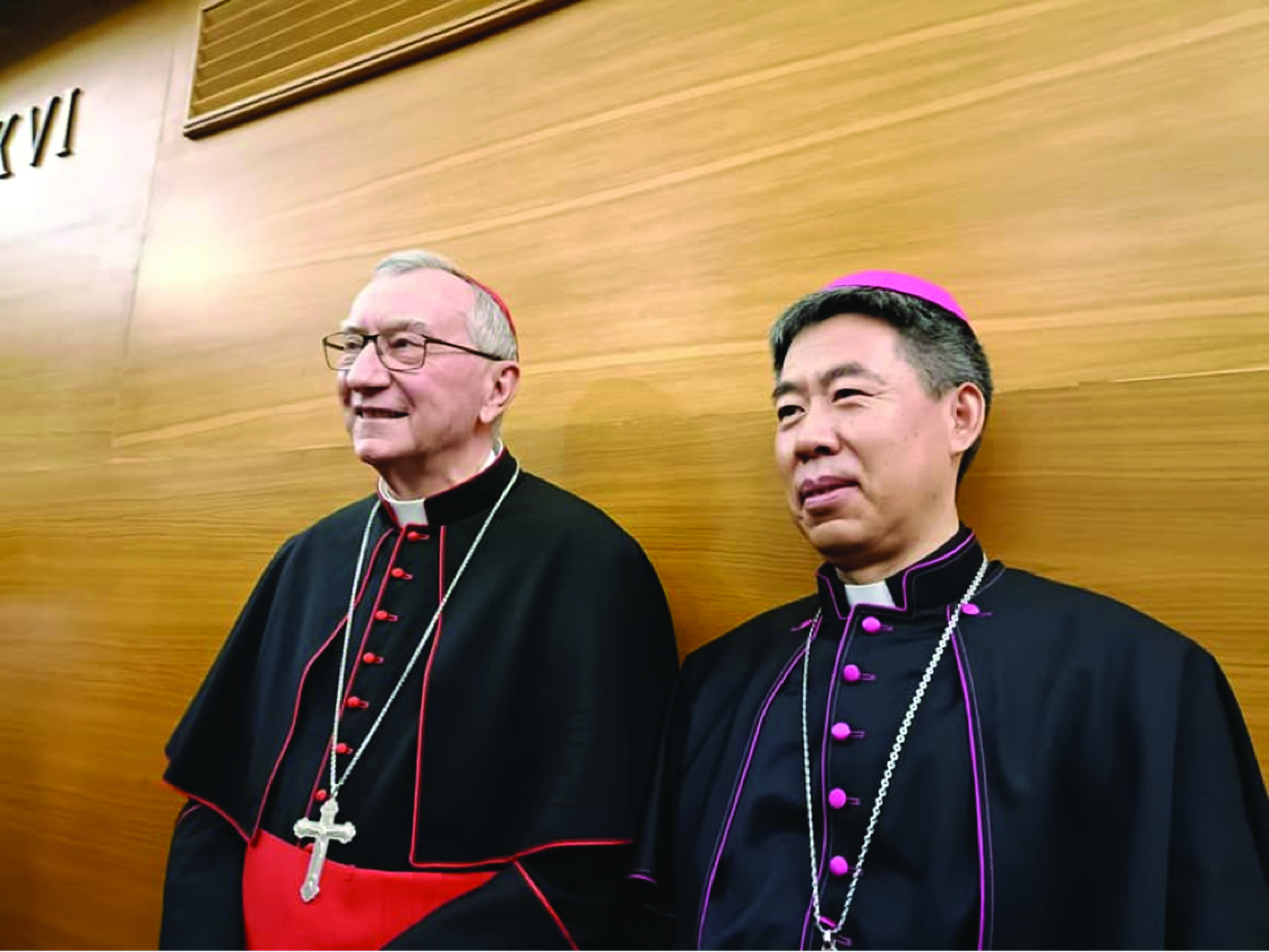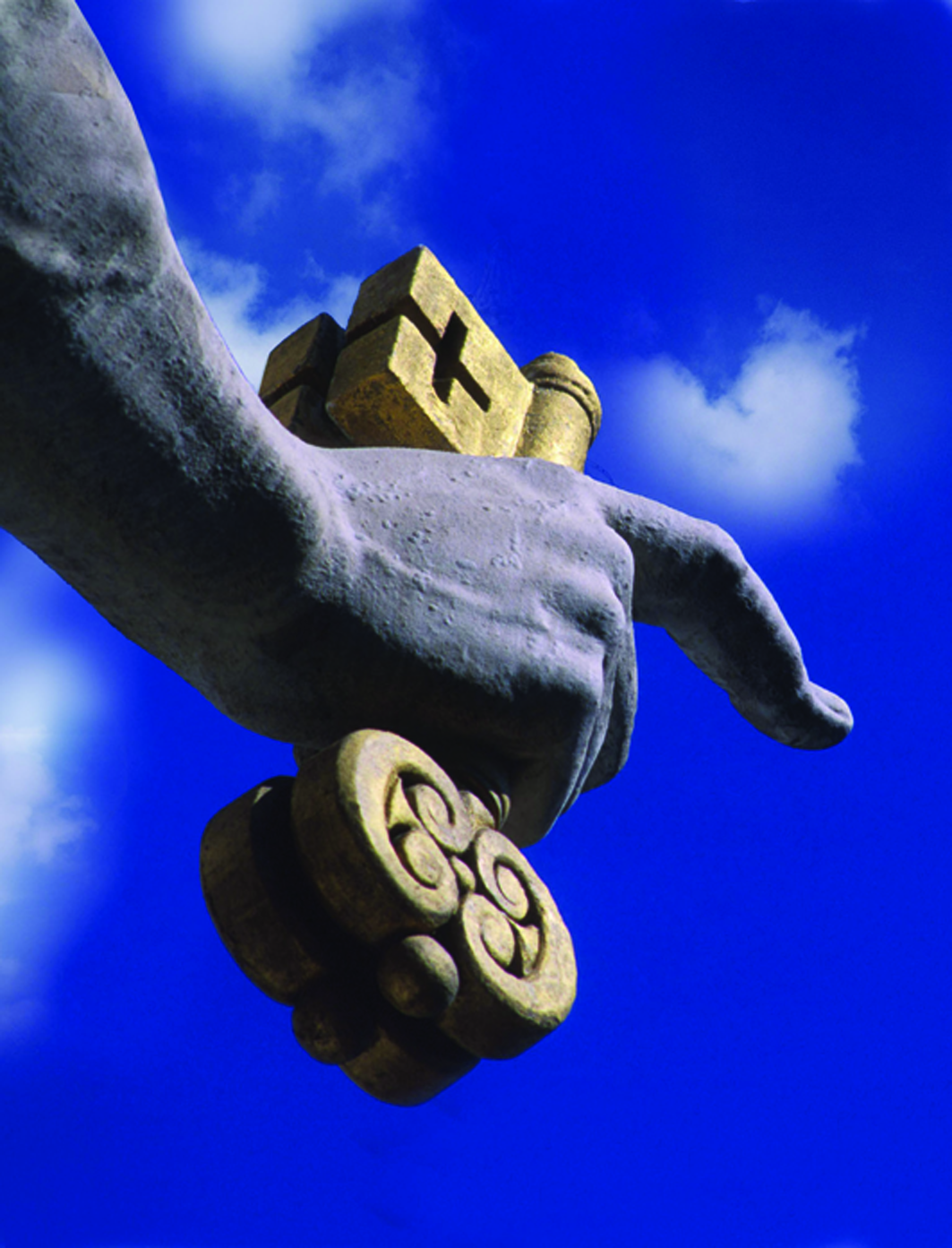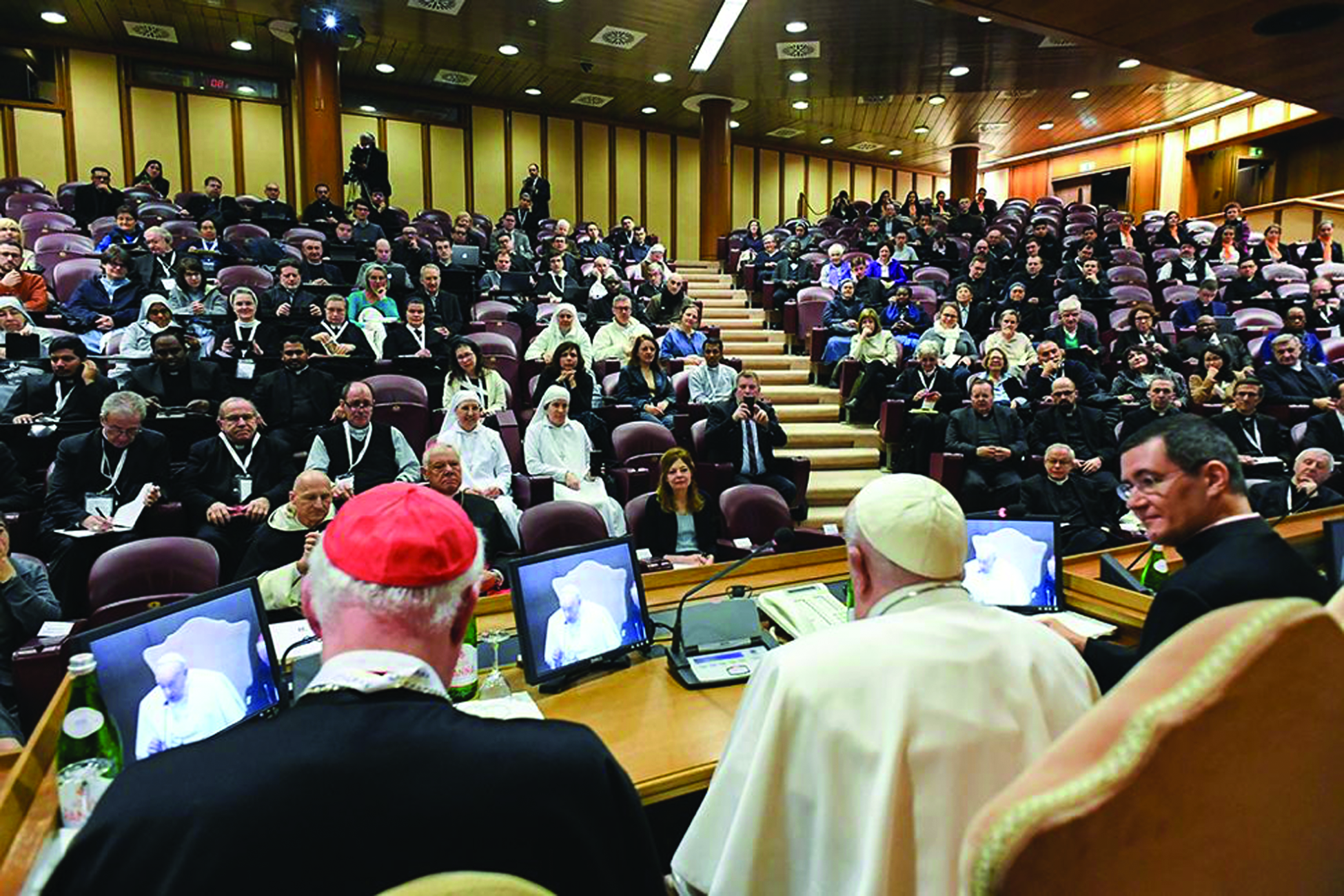In this interview, the recently- appointed Vatican secretary of state, Pietro Parolin, outlines what he hopes to achieve in his new diplomatic role. From the Apostolic Nunciature in Caracas, where he was still working as the Holy See’s “ambassador” to Venezuela, Parolin talked about his view of the geopolitical situation in light of Pope Francis’ efforts to bring peace to Syria.
The Pope’s call for a day of prayer and fasting to promote peace in Syria is striking from a diplomatic point of view. A truce was declared during World War One when Benedict XV was Pope. Is Francis a new Benedict XV?
Archbishop Pietro Parolin: Benedict XV didn’t really succeed in his attempts because, as you know, he tried his best to stop the war but failed. Unfortunately, Benedict XV’s appeals fell on deaf ears, as the great powers didn’t pay much attention to what he had to say. “The war is a useless massacre,” he said. This phrase became famous and was widely quoted, but it didn’t achieve much. It worked better on Woodrow Wilson, who adopted the Pope’s proposals and came up with the famous 14 points that led to the armistice and then peace. But this peace was shaky because it led to the Second World War.
But he sought peace like other Popes did…
Parolin: Certainly. Peace has always been one of the Popes’ main concerns. On that occasion it was Benedict XV’s turn. But just think back to what Pope Pius XII did during the Second World War to bring people a little closer together and achieve peace!
I witnessed this first hand, and I also witnessed Pope John Paul II’s efforts to bring peace when the Gulf War and then the Iraq War broke out. And what a diplomat! He didn’t just contact the various chancelleries; he sent two envoys, one to President of the United States George Bush and another to Saddam Hussein (Iraq’s president), to see if it was possible to reach some kind of peaceful compromise and find a solution to that situation. It seems to me Francis’ style is the same. He is projecting the Holy See’s great desire for the peace in the world.
Is this the aim of diplomacy?
Parolin: I would also say that the reason why the Holy See has a diplomatic corps is in order to strive for peace. The Holy See’s diplomacy has been so important and has enjoyed so much consensus across the world in the past and at present, because it transcends national interests, which are sometimes very partial. Vatican diplomacy is concerned with the common good of humanity.
Thinking back to what you said about John Paul II and his alliance with Lech Walesa, what would you say are the new “Berlin Walls” the Church needs to knock down?
Parolin: Obviously, I think that the main aim today is to strive for peace in the midst of the diversity that exists in this multipolar world. There are no blocs as there were before. There are various different powers; different powers have risen, with all the problems inherent in this. We thought about our hopes for peace and happiness and we thought that the fall of traditional walls like the Berlin Wall, the wall which separated countries into blocs, the Communist bloc and the Western bloc, would bring peace and happiness into the world. But this was not the case. The terrorist problem then presented itself.
So I think the wall that needs to be knocked down, involves trying to get all these entities to reach an agreement and work together for the good of everyone—bringing everyone’s differences together to make them strong points for the whole of humanity instead of causes for division.
What is the secretariat of state’s role in all of this?
Parolin: The Vatican secretariat of state needs to review the kind of presence it has, because contexts have changed. There was the historical work Cardinal Agostino Casaroli did back in the days of the blocs and Ostpolitik, not to mention the defense of human rights. But now things are far more complex.
The style has changed… have objectives changed as well?
Parolin: No. What I mean is that the way in which the secretariat of state is present needs to be rethought, but objectives do not change. And speaking of big challenges, we need to come out of this relativism which is plaguing the world!
The objective is to resolve differences. If there is no common ground, if there is no objective truth we can all relate to, it will be far harder to find things we have in common. This common ground is a person’s dignity in all its dimensions, including the transcendental one; it is not just the personal, social, political, economic dimension but also the transcendental dimension, in which humans see themselves as persons created in the image and likeness of God, and God as their source.
Does the Holy Father see it this way too?
Parolin: Pope Francis has stressed this on many occasions: this is the most solid source of respect for human rights, the respect and dignity of humans and peaceful co-existence.
Can we hope for a firmer global diplomatic offensive for peace with you as the new Vatican secretary of state?
Parolin: This is a complex question. I have noticed that the Pope’s initiatives have given impetus to the secretariat of state’s work and a diplomatic movement has been created. I hope we will continue this work because we have the advantage over other Churches and religions, of having an international diplomatic presence in the institutions. We need to make the most of this!
Take advantage of it in what sense?
Parolin: Making use of these tools instead of letting them sit there. We need to put them to good use, as Vatican diplomacy always has. Especially when there is an emergency. Diplomacy should have the good of humanity as its aim. I would also like to underline, however, that I am completely at the Pope’s disposal.
Are we hoping that the Church will play a more central role in order to achieve this?
Parolin: To achieve the good of humanity, yes, and to make the most of the instruments we have: our network of nuncios, the contacts we have with international organizations…
Some Vatican correspondents have been pointing out that Vatican geopolitics will not be making headlines. What do you think?
Parolin: You know very well that I personally do not want a diplomacy that makes headlines; I want diplomacy to be more efficient. We are not trying to gain popularity. I honestly don’t think any of us wants this, unless there is an impact. We should bear in mind what the Gospel says: “Do not let your left hand know what your right hand is doing.”
Archbishop Parolin, are you working on the Syria initiative directly, or are you observing the work being done, as some have claimed you are?
Parolin: No, no, I have not started my role yet. Absolutely not. I will take up my post on October 15, and until then I will carry on my current duties, with God’s help. I have a lot of work to do here in Venezuela.






Facebook Comments